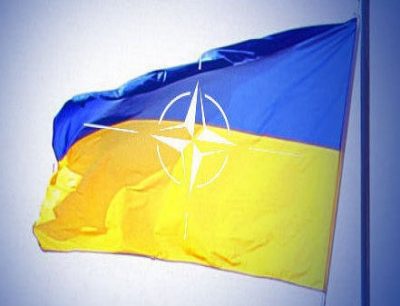EU Diplomacy Chief Expresses Disinterest in Joining Biden’s Escalations Against Russia over Ukraine

All Global Research articles can be read in 51 languages by activating the “Translate Website” drop down menu on the top banner of our home page (Desktop version).
To receive Global Research’s Daily Newsletter (selected articles), click here.
Visit and follow us on Instagram at @globalresearch_crg.
***
President Joe Biden predicted last Wednesday that Russia “will move in” to Ukraine and take much of the country by force. Biden vowed harsh sanctions on Russia should war with Ukraine breakout. These threats of sanctions come as Moscow continually stresses that it has no plans or intentions of invading Ukraine, something that the majority of the EU recognizes but that the Anglo Alliance of Washington-London refuses to accept. None-the-less, it appears that the Anglo Alliance is hoping for a Russian mistake in Ukraine to justify a military intervention.
Biden announced on Sunday his consideration to send thousands of US troops, warships and aircraft to the Baltics and Eastern Europe amid rising tensions. The State Department issued Level 4 travel warnings for Russia and Ukraine, in addition to ordering diplomats’ family members to leave Ukraine. British diplomatic staff in Ukraine have also started to leave.
In this context, frustration is building in Brussels as Biden seemingly escalates tensions with Moscow out of nowhere. The head of European diplomacy, Josep Borrell, responded to the Anglo diplomatic withdrawal from Ukraine, saying on Monday:
“We are not going to do the same thing because we don’t know any specific reasons.”
“I don’t think we had to dramatize as far as the negotiations are going on — and they are going on,” Borrell added as he arrived for a meeting of EU foreign ministers, which included the videolink attendance of US Secretary of State Antony Blinken.
A day earlier on January 23, Blinken rejected calls for preemptive sanctions on Russia, saying that doing so would undermine the West’s ability to deter Moscow from any potential aggression against Ukraine. In this way, it seems overly exaggerated that the threats of sanctions are continuously pushed in Anglo media despite assurances from Moscow that there are no plans for invading Ukraine.
European Union members, with the usual exception of Poland and the Baltic States, recognize that Washington is escalating tensions in Europe for no good reason at all, hence why Borrell did not hesitate to highlight the need to not overly dramatize events. Moscow also recognizes such European positions too, acknowledging that the bloc is not united but that most states individually want to engage with Russia.
Take for example Russian Foreign Minister Sergey Lavrov, who only last week said that
“I understand that Greece is a member of NATO, the EU. But we also see that Greece does not want to follow the path of worsening anti-Russian sanctions, Greece in principle does not feel satisfied with what is happening now between the West and the Russian Federation.”
Despite European antipathy towards war on the continent, it has not diminished efforts by the Anglo Alliance to try and isolate Russia from Europe. It is for this reason that British Foreign Minister Liz Truss announced development in London’s relations with Ukraine and Poland in their efforts to block Russia from Western Europe. This was stated by Truss during a speech at the Lowy Institute on global threats to freedom, democracy and the rule of law, according to the press service of the British government.
“We’re also strengthening our bilateral partnership following high-level talks in London in December – and we’re fostering new trilateral ties with Poland and Ukraine,” Truss stated on Friday, adding that Britain will continue to support Ukraine.
British think-tank Council on Geostrategy considers Truss’ statement as a possible announcement of a new tripartite geopolitical alliance between the UK, Poland and Ukraine, something that could be akin to the AUKUS pact signed by the US, UK and Australia to counter China.
In this way, it appears that in the European context, it is only non-EU member state UK and the minnow countries of the Baltics and Poland that are wanting to challenge Russia. From the European perspective, with the usual exceptions, it is believed that war on the continent should not occur in the 21st century.
However, it is the actions of the Baltic States and Poland, feeling emboldened by the strong rhetoric emanating from Washington and London, that could risk engulfing the entire continent in war. In such a scenario, it would likely once again expose the disunity and frailties of NATO as it is inconceivable to imagine that countries like Portugal, Spain or Greece would send their soldiers to fight and die for the sake of supporting Anglo-Polish-Baltic provocations against Russia. In this way, the Anglo Alliance hopes that Russia will miscalculate their manoeuvres and attack Ukraine, hence potentially justifying a military intervention.
*
Note to readers: Please click the share buttons above or below. Follow us on Instagram, @crg_globalresearch. Forward this article to your email lists. Crosspost on your blog site, internet forums. etc.
Paul Antonopoulos is an independent geopolitical analyst.

